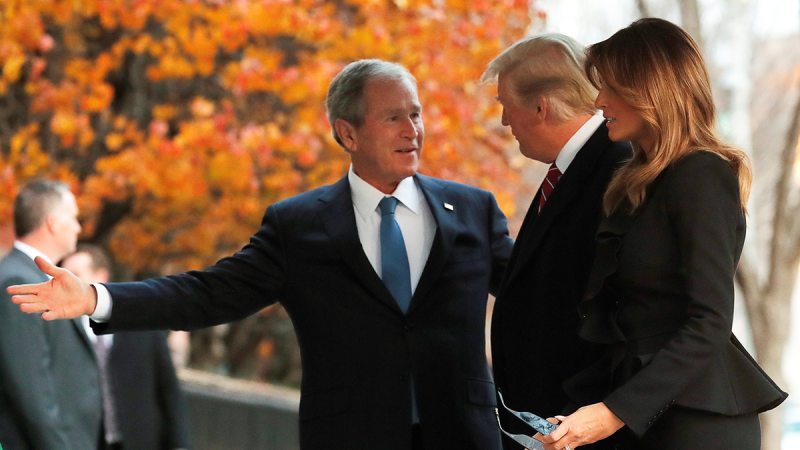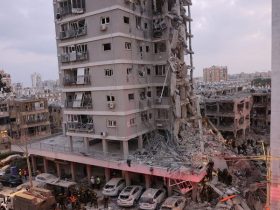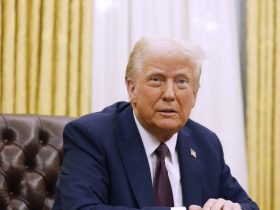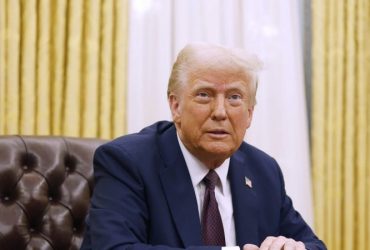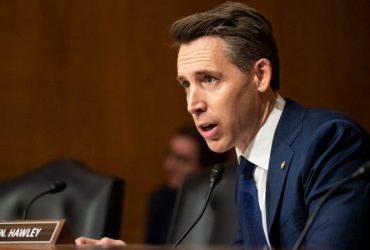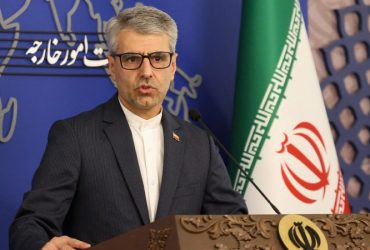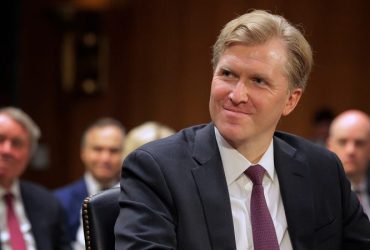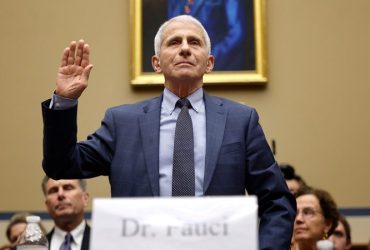The War on Terror led to regime change in Iraq and a briefly democratic Afghanistan — at least until former President Joe Biden’s disastrous withdrawal. More recently, a separate conflict between Israel and Iran saw the U.S. step in to help destroy nuclear facilities — but observers should pause before making any apples-to-apples comparisons between the two eras.
The image of then-White House chief of staff Andrew Card whispering in President George W. Bush’s ear during an elementary school reading event that the Twin Towers had been hit by terrorists began a continuing three decades of U.S. involvement in the Middle East.
The Middle East and the world writ-large was a different place back then, Heritage Foundation senior China and National Security Policy studies fellow Steve Yates told Fox News Digital.
Yates previously served in the Bush administration as a top national security affairs adviser to then-Vice President Dick Cheney. More recently, he co-chaired the 2016 RNC’s platform subcommittee on national security.
‘The world has changed an awful lot in 20 years,’ Yates said, when asked to compare the two administrations.
‘And I think that my perceptions of things have changed a great deal, in no small part, because I’ve had as a primary focus, among all other things in the world, what’s happening with China.’
During the Bush years, the Chinese Communist Party was led by Hu Jintao, who Yates quipped was the ‘definition of boredom’ compared to the feistier Xi Jinping.
The differences there and in the Mideast have presented challenges to the U.S., Yates said.
President Donald Trump leads essentially the first ‘post-globalist’ presidency as the world ‘awaken[ed] from’ its ‘globalist moment’ since the 1990s.
‘None of those things were factors in the early 2000s. And I think that context is vital to try to see how things are handled now,’ he said.
‘Frankly, I am a supporter of President Trump and what he’s been trying to do. I think he’s very clear that he’s willing to use decisive force when he judges it to be necessary.’
In the Middle East, American intervention during the War on Terror led to dictator Saddam Hussein being deposed, and a decades-long ground war ensued.
Iran, at the time, was led by Mahmoud Ahmadinejad — a more prominent president. Ayatollah Ali Hosseini Khamenei has become the more prominent global figure as of late, over current President Masoud Pezeshkian.
And, while the War on Terror led to boots on the ground, Yates noted Trump has been clear that he wants Mideast allies and their Western-friendly neighbors to carry their ‘fair share’ of risk and responsibility for what happens in the region — which has been marked by conflicts since the time of Jesus Christ.
‘In that, Israel has been very clear. They haven’t asked for American boots on the ground. To my knowledge to this point they haven’t asked for much of anything other than rhetorical support,’ he said, prior to the U.S. dropping MOP bombs from B-2s on Saturday night.
Yates foreshadowed that Trump has made clear he is ready to use ‘decisive American force’ if necessary to prevent Iranian nuclear proliferation.
‘That is a definable objective… That is not a war of occupation or trying to ‘remake Iran in our image’ as some [have] characterized Iraq, whether fairly or unfairly.’
‘So I think that the president has navigated this with deeper logic than most people give credit.’
The question at this time in history is more whether ‘the Old World’ will act on their shared interest in supporting a non-nuclear Iran or similar outcome in a meaningful way.
He referenced the ‘EU-3’ — Germany, Great Britain and France, the three largest European economic powers — and said they had previously been a ‘moderating force’ in negotiations that allowed Tehran to ‘mitigate sanctions’ and go back on promises made.
But the EU-3’s model failed to solve the problem, revealing that the early 21st century style of diplomacy — which often pulled the U.S. into conflicts — may no longer be effective. Israel’s decisive response to October 7 only underscored that point.
‘I still have a lot of gratitude and respect for my colleagues back in the Bush administration. I just see us as a world in a fundamentally different place,’ he said.
‘And I would give President Trump pretty high marks on how he’s balanced equities — keeping true to his definition of what America First means, but also true to standing by allies in times of need.’

